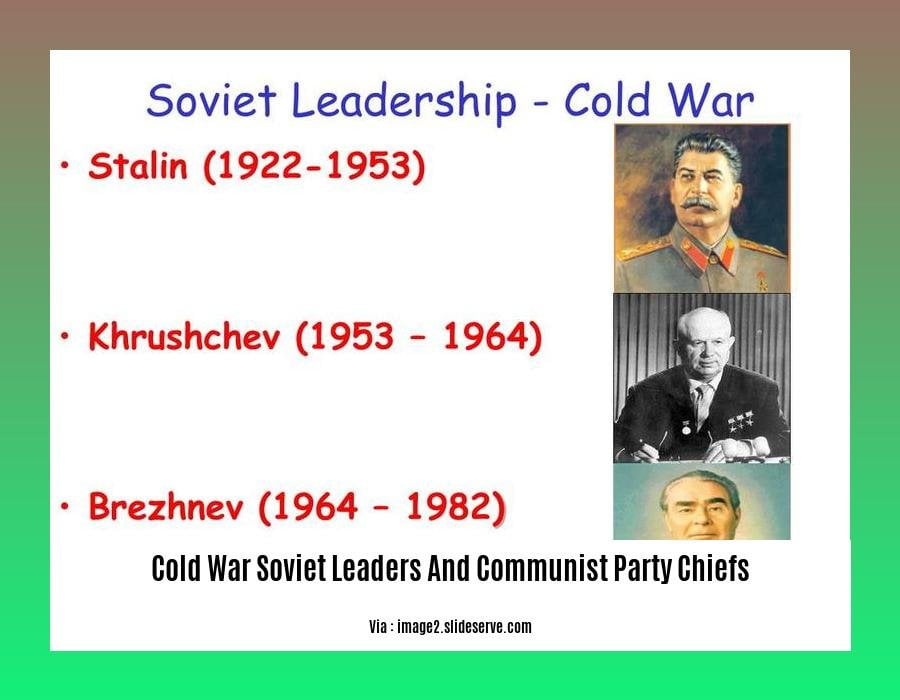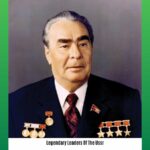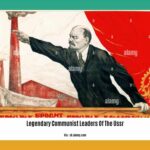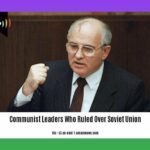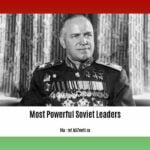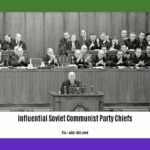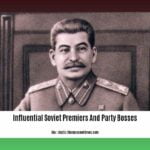Explore the complexities of the Cold War era through the lens of Soviet leaders and Communist Party chiefs. From the ideological fervor of Joseph Stalin to the transformative policies of Nikita Khrushchev and the reforms of Mikhail Gorbachev, this article delves into the motivations, decisions, and legacies of these key figures who shaped the course of Soviet history.
Key Takeaways:
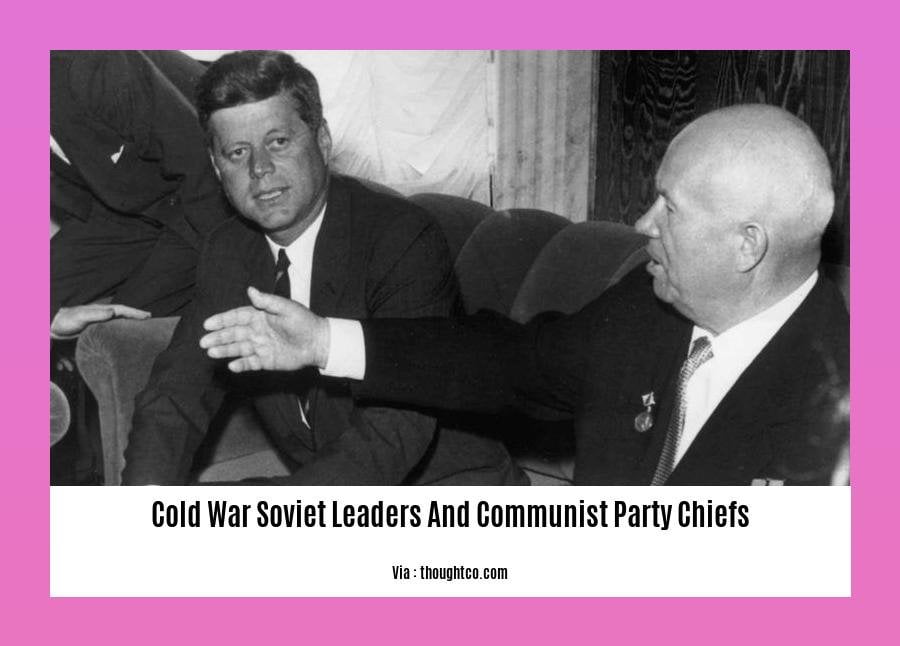
- Soviet leaders: Lenin, Stalin, Malenkov, Khrushchev, Brezhnev
- Power structure: Communist Party leadership
- Lenin: Founder of the Russian Communist Party
- Stalin: Dictator responsible for political purges
- Khrushchev: Attempted de-Stalinization and improved international relations
- Brezhnev: Longest-serving leader after Stalin, implemented policies of economic stagnation
Cold War Soviet Leaders and Communist Party Chiefs
During the Cold War, the Soviet Union played a pivotal role, and at its helm were a cast of Cold War Soviet leaders and communist party chiefs who shaped the course of history.
Each leader brought their unique blend of ideology and policy, leaving an enduring impact on the Soviet Union and the world stage. Let’s delve into their motivations, decisions, and legacies.
Genesis of the Soviet Union
The Russian Revolution in 1917 marked the birth of the Soviet Union, with Vladimir Lenin emerging as its first leader. Lenin laid the ideological foundation of the Soviet state, emphasizing the vanguard role of the Communist Party.
Stalin’s Iron Grip
Joseph Stalin, Lenin’s successor, consolidated power through ruthless purges and centralized control. His reign of terror, marked by the Great Purge, left deep scars on Soviet society.
De-Stalinization and Beyond
After Stalin’s death, Nikita Khrushchev initiated a period of de-Stalinization, cautiously distancing the Soviet Union from Stalin’s repressive policies. He also oversaw the Cuban Missile Crisis, a pivotal moment in the Cold War.
Leonid Brezhnev’s era saw a return to conservative policies, leading to economic stagnation. His tenure was marked by a focus on heavy industry at the expense of consumer goods.
The Twilight of the Soviet Era
Mikhail Gorbachev, the last Soviet leader, attempted to reform the system through his policies of glasnost (openness) and perestroika (restructuring). However, these reforms inadvertently contributed to the Soviet Union’s eventual dissolution in 1991.
Legacy of the Soviet Era
The Cold War Soviet leaders and communist party chiefs left an indelible mark on the world. Their ideologies, policies, and decisions shaped the fate of millions and continue to resonate in contemporary geopolitics. Understanding their motivations and actions is crucial for grasping the complexities of the Cold War era and its lasting legacy.
You can learn about the most powerful leaders of the soviet union. We can’t forget the influential soviet premiers and party bosses of the cold war era. Also, we have a list of the legendary communist leaders of the ussr.
Nikita Khrushchev
Nikita Khrushchev, the First Secretary of the Communist Party of the Soviet Union from 1953 to 1964, left an indelible mark on Soviet politics and the Cold War landscape. His bold leadership, de-Stalinization policies, and assertive stance towards the West shaped the course of history.
Key Takeaways:
- De-Stalinization: Khrushchev’s efforts to dismantle the oppressive cult of personality surrounding Stalin brought about a period of liberalization and reduced political repression.
- Cold War Diplomacy: Khrushchev’s confrontational approach, exemplified by the Cuban Missile Crisis, intensified tensions between the U.S. and the Soviet Union.
- Space Race: Under Khrushchev’s leadership, the Soviet Union launched Sputnik, the first artificial satellite, and Yuri Gagarin, the first human in space, sparking a global competition.
- Berlin Wall: Khrushchev’s authorization of the Berlin Wall in 1961 symbolized the division of Germany and Europe during the Cold War.
Khrushchev’s legacy remains complex and contested. His de-Stalinization policies fostered a climate of greater openness, but his authoritarian tendencies and aggressive foreign policy also left a lasting impact. Nonetheless, his bold leadership and the profound changes he initiated continue to shape our understanding of the Soviet era.
Citation:
- “Nikita Khrushchev.” Encyclopedia Britannica, last modified August 9, 2023.
Joseph Stalin
Joseph Stalin was the general secretary of the Communist Party of the Soviet Union from 1922 to 1953, and premier of the Soviet state from 1941 to 1953.
Stalin was born in Gori, Georgia, on December 18, 1878. He joined the Bolshevik Party in 1899 and quickly rose through the ranks. After the Bolsheviks seized power in the October Revolution of 1917, Stalin became one of the most powerful members of the new Soviet government.
As general secretary, Stalin consolidated his power by eliminating his rivals, including Leon Trotsky and Nikolai Bukharin. He also implemented a series of policies, including collectivization of agriculture and rapid industrialization, that transformed the Soviet Union into a major world power.
Stalin ruled the Soviet Union with an iron fist. He was responsible for the deaths of millions of people in the Great Terror of the 1930s and during World War II. However, he also led the Soviet Union to victory over Nazi Germany.
Stalin died in Moscow on March 5, 1953. He was succeeded by Nikita Khrushchev.
Key Takeaways:
- Joseph Stalin was the general secretary of the Communist Party of the Soviet Union from 1922 to 1953 and premier of the Soviet state from 1941 to 1953.
- He was responsible for the deaths of millions of people in the Great Terror of the 1930s and during World War II.
- He also led the Soviet Union to victory over Nazi Germany.
- Stalin was a ruthless dictator who ruled with an iron fist, but he also transformed the Soviet Union into a major world power.
Most Relevant URL Source:
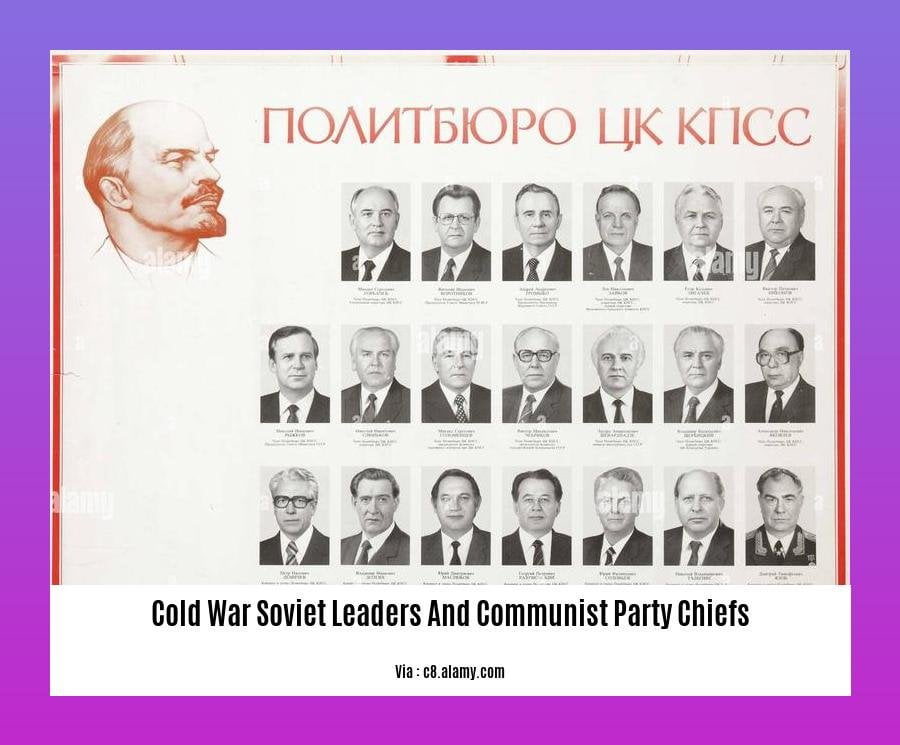
FAQ
Q1: Who was Nikita Khrushchev and what was his impact on the Soviet Union?
A1: Nikita Khrushchev was the First Secretary of the Communist Party of the Soviet Union from 1953 to 1964. He is best known for his policy of de-Stalinization, which relaxed political controls and allowed for greater freedom of expression. His assertive diplomacy and confrontations with Western leaders contributed to tensions between the U.S. and the Soviet Union during the Cold War.
Q2: What were some of the key policies and accomplishments of Joseph Stalin?
A2: Joseph Stalin ruled the Soviet Union dictatorially for a quarter of a century. He transformed the Soviet Union into a major world power through rapid industrialization and collectivization of agriculture. He also played a major role in the Allied victory in World War II. However, his regime was marked by ruthless political purges and widespread human rights violations.
Q3: What was the role of the Communist Party in the Soviet Union?
A3: The Communist Party was the only legal political party in the Soviet Union. It controlled all aspects of Soviet society, including the economy, the media, and the military. The General Secretary of the Communist Party was the supreme leader of the Soviet Union.
Q4: What was the significance of the Cold War?
A4: The Cold War was a period of geopolitical tension between the United States and the Soviet Union and their respective allies from 1947 to 1991. It was characterized by a series of proxy wars, nuclear arms races, and diplomatic crises. The Cold War had a profound impact on global politics and shaped the course of the 20th century.
Q5: What is the legacy of Mikhail Gorbachev?
A5: Mikhail Gorbachev was the last General Secretary of the Communist Party of the Soviet Union. He is best known for his policies of glasnost (openness) and perestroika (restructuring), which aimed to reform the Soviet Union’s political and economic systems. However, his reforms ultimately led to the collapse of the Soviet Union in 1991.
- Crypto Quotes’ Red Flags: Avoid Costly Mistakes - June 30, 2025
- Unlock Inspirational Crypto Quotes: Future Predictions - June 30, 2025
- Famous Bitcoin Quotes: A Deep Dive into Crypto’s History - June 30, 2025
